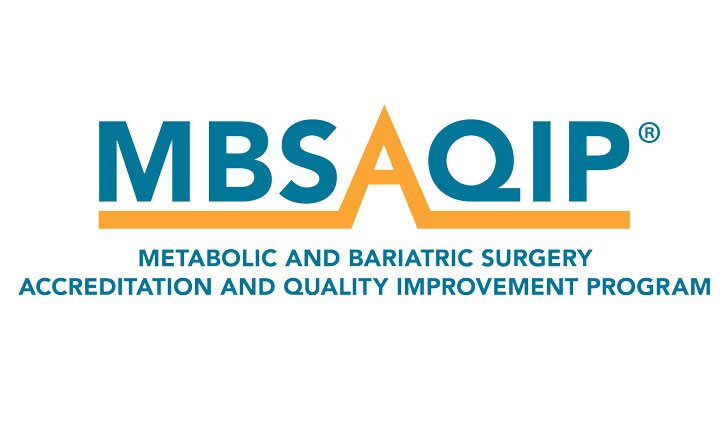Bariatric Surgery & Diabetes – What You Need to Know in 2023
Part 1: Can You Manage Diabetes with Bariatric Surgery?
If you are obese and have Type 2 diabetes, you’re probably concerned about the effect on your health. You should be. Obesity increases your chance of dying early, and your risk for a number of diseases, including Type 2 diabetes. And diabetes, according to the World Health Organization, “…was the direct cause of 1.5 million deaths (in 2019), and 48% of all deaths due to diabetes occurred before the age of 70 years.”
But there’s good news. Studies have shown that bariatric surgery can help manage Type 2 diabetes, in some cases, reverse it. “For the first time in the history of diabetes therapy, a therapeutic approach has emerged, which holds promise not only as an effective management tool but also as a potential cure.”
In this first part of our two-part series on bariatric surgery and diabetes, you’ll learn about:
- Types of bariatric (weight loss) surgery
- Eligibility criteria for bariatric surgery
- Bariatric surgery’s effect on obesity and diabetes
You’ll also find the answers to some frequently asked questions about bariatric surgery and diabetes. In Part 2 of this series, you’ll read about the long-term outcomes of bariatric surgery in managing diabetes.
Types of Bariatric Surgery and Eligibility Criteria
If you are considering bariatric surgery, whether for weight loss or to manage diabetes, you may be a good candidate for if you:
- Have a body mass index (BMI) over 40.
or
- Have 100 or more pounds to lose.
or
- Have a BMI over 35 and have a chronic weight-related health condition such as high blood pressure, heart disease, metabolic syndrome, or Type 2 diabetes.
or
- Have been unable to maintain a healthy body weight even on a medically supervised weight-loss program.
The two most common types of bariatric surgery are also the most effective in managing Type 2 diabetes. Both of them reduce the size of the stomach, which has the added effect of reducing the body’s levels of the hunger-triggering hormones that can lead to diabetes.
Gastric Bypass
During gastric bypass surgery, a surgeon reroutes the digestive system, dividing the stomach into two unequal sections and attaching the small intestine to the smaller section. As a result, food bypasses the majority of the original stomach, enters the smaller section of the stomach, and then proceeds through the small intestine.
Gastric sleeve surgery (aka. Sleeve Gastrectomy Surgery)
Rather than rerouting the digestive tract, in gastric sleeve surgery the surgeon removes about three fourths of the stomach, creating a sort of sleeve. Gastric sleeve surgery is typically reserved for people who are extremely obese and may not be able to tolerate the longer gastric bypass surgery.
Both gastric bypass surgery and gastric sleeve surgery may be performed laparoscopically, which can reduce pain and shorten recovery time.
How Bariatric Surgery Helps with Weight Loss and Insulin Resistance
Obviously, a smaller stomach holds less food, so fewer calories are consumed, which aids in weight loss. But that’s not the only reason bariatric surgery helps with diabetes. Several studies have reported that weight loss surgery also changes hormone production. And in a 2019 study led by Dr. Ali Aminian, associate professor of surgery at the Cleveland Clinic, researchers discovered that, in addition to the hormonal changes, bariatric surgery also changed the composition of healthy gut bacteria. “It’s not just one factor,” Aminia said in an interview with Time magazine. “Weight loss is important, the gut hormones are important, and the microbiome is important,” says Aminian. “They all work together like an orchestra to improve the metabolic condition of the patient.”
And the improvements were impressive: By the end of Aminian’s study, many patients no longer needed insulin, and the percentage of patients relying on non-insulin diabetic medications also dropped from 80% to around 40%.
Aminian is not the only researcher who has seen a reversal in Type 2 diabetes after bariatric surgery. The American Society for Metabolic and Bariatric Surgery (ASMBS) reports that the majority of people with Type 2 diabetes go into diabetes remission after bariatric surgery.
Frequently Asked Questions (FAQs) about Bariatric Surgery and Diabetes
How Effective is Bariatric Surgery in Managing Diabetes?
Bariatric surgery, also known as weight loss surgery, is the most effective treatment for Type 2 diabetes. The majority of diabetic patients who undergo bariatric surgery demonstrate not just weight loss, but improved blood sugar levels and a reduced need for diabetes medication.
Can Bariatric Surgery Cure Type 2 Diabetes?
Type 2 diabetes is a chronic disease and requires lifelong management. That said, many people find that bariatric surgery manages their diabetes so well that they are in remission and no longer need medication or have difficulty controlling their glucose levels.
Is Bariatric Surgery Covered by Insurance?
If you are severely obese and meet certain criteria, most large insurance companies cover bariatric surgery, as do Medicare and Medicaid. Most patients will be responsible for some out-of-pocket costs. Talk to your insurance provider to learn more.
Key Takeaways
Bariatric surgery (also known as weight loss surgery) reduces the size of the stomach. This reduction aids in weight loss and also changes the gut biome and hormone production, resulting in the reversal of diabetes for the majority of patients.
The two most popular and effective types of bariatric surgery are gastric bypass surgery and gastric sleeve surgery. Eligibility for bariatric surgery depends on a number of factors as does its success, which we’ll talk about in Bariatric Surgery & Diabetes – What You Need to Know in 2023: Part 2.
Want to learn more? Talk to Dr. Preeti Malladi, an experienced and skilled surgeon with offices in the Dallas and Plano areas. She and her team at Malladi Bariatrics and Advanced Surgery can explain the procedures, explore your options, and most importantly, help you get started on a lifelong path to better health! Contact us today.







